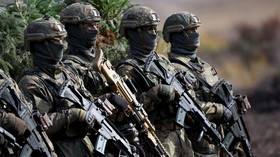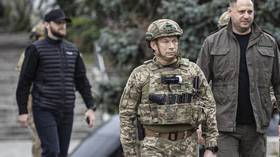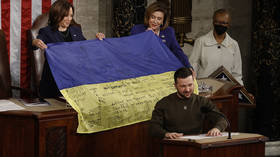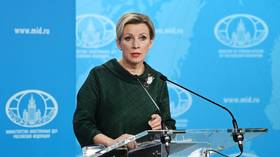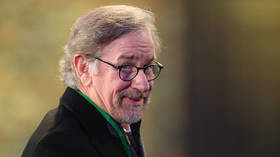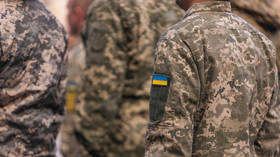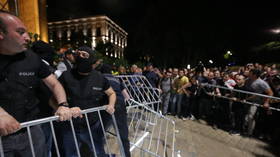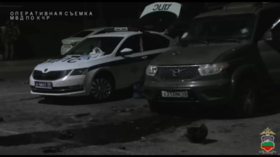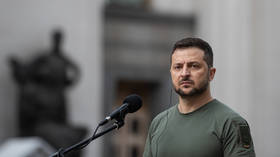Russia reacts to Poland's invitation to German troops
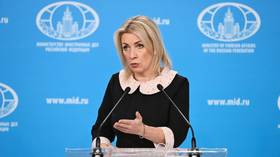
Warsaw’s announcement that it is prepared to invite German military units, in addition to already existing NATO forces in the country, demonstrates the West’s anti-russian agenda and desire to increase tensions in Europe and will not go unanswered, said Russian Foreign Ministry spokeswoman Maria Zakharova.
Her comments come after Polish Deputy Foreign Minister Andrzej Szejn stated on Monday that Warsaw was willing to host German troops on its territory for the first time since World War II in order to further strengthen NATO’s eastern flank. It’s unclear if Germany has any actual plans for such deployments.
During a press briefing on Wednesday, Zakharova recalled that there are currently about 10,000 US troops already stationed in Poland, as well as a multinational NATO combat tactical group which includes military personnel from the US, the UK, Romania and Croatia.
The spokeswoman pointed out that calls to deploy even more foreign forces to Poland were “not necessary if these countries are peace-oriented,” and can only be interpreted as a desire to further escalate tensions in Europe and prolong the collapse of pan-European security, which she said has been completely undermined by NATO.
Zakharova also recalled that late last year, Germany had signed an agreement with Lithuania to increase the size of the Bundeswehr contingent in the Baltic republic to a brigade, and suggested that Polish leaders were trying not to “lag behind their neighbors in demonstrating loyalty to their older brothers from Berlin and Washington.”
“The increased activity and the strengthening of NATO’s military capabilities near the borders of Russia and the Union State of Russia and Belarus is provocative and is leading to the complete degradation of the European security architecture,” Zakharova said, stressing that “such steps will, of course, not be left without an appropriate response from the Russian side.”
The spokeswoman also pondered how Poland intended to finance the potential deployment of German troops on its territory and whether it would seek compensation from Berlin, given the fact that Warsaw is already demanding $1.3 trillion in WW2 reparations from Germany.
The reparations demands were put forward under the former PiS government which was ousted from power last month. Poland’s new government, led by former European Council President Donald Tusk, has stated that it will continue to seek these compensations from Berlin, but would work with Germany to find “a favorable and fair solution.”
